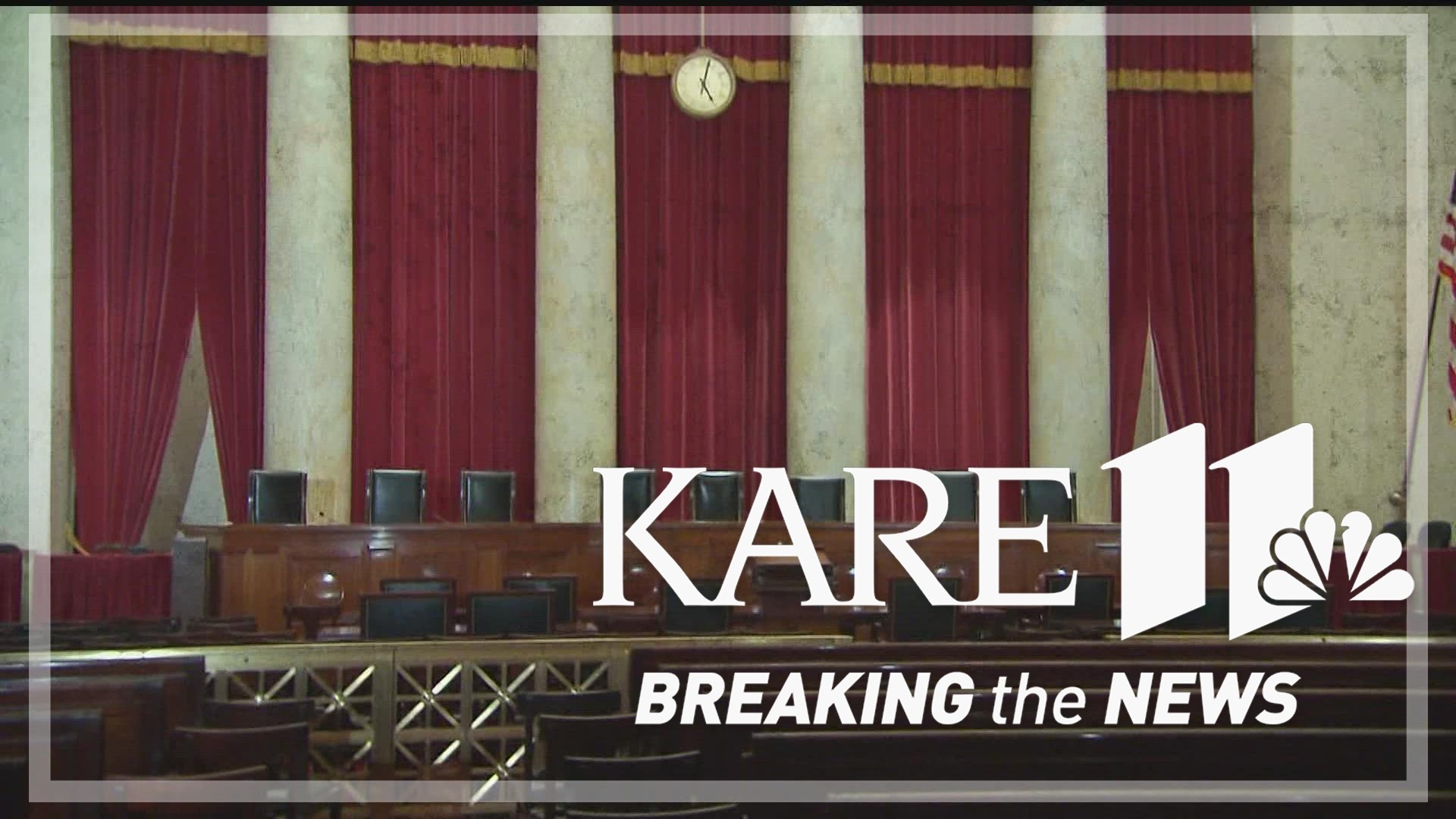MINNEAPOLIS — The leaking of the United States Supreme Court draft opinion regarding the landmark Roe v. Wade decision Monday is being described as the greatest security breach in the history of the Court — an institution typically known for being ironclad.
Some, like University of Minnesota professor Tim Johnson, might even say it's akin to some of the biggest leaks in American history.
"This meets the 'Pentagon Papers' threshold; this meets the 'Deep Throat' threshold," he said.
How did it happen? We don't know yet. To find out, Chief Justice John Roberts ordered an investigation.
As for Johnson, he's studied the Court's every move for decades. His take?
"The significance of this is, it's the first time in history where we have gotten to see this early on in the process what the majority is thinking about how it's going to rule in the case," Johnson said.
A similar thing did happen during the first Roe decision in 1973, when hours before it was announced, a clerk leaked the ruling to Time Magazine where it was subsequently published.
Although Monday's leak was in draft form, experts believe the leak could still be significant and damaging to the entity that is the nation's highest court.
"I think it's damaging because they take their privacy and security so incredibly seriously," Johnson said.
Historically, the court likes to be seen as apolitical — above leaks, most certainly.
Johnson says there are fewer than 50 people, including the justices, who would even have access to this draft. Of those people, clerks and others with access to the documents, sans justices, sign non-disclosure agreements covering anything the court is doing.
"You do not tell anything," Johnson said. "You don't say, 'I know what my justice eats for lunch every single day.' You don't even talk about something that trite. And to leak an opinion that is still not in its final form is as the court said is an 'unforgivable sin.'"
To even have Chief Justice Roberts confirm the authenticity of the leak Tuesday is extraordinary, as the Court generally pays no attention to outside stories like this.
The fact that the opinion did leak stresses the extent of the breach — one too big to be ignored.
"The Court really holds its rules in very high regard," Johnson said.
Johnson did, however, stop short of calling the breach a criminal act — but that's not to say there won't necessarily be consequences.
"I mean, I suppose there could be something civil because NDAs have been signed," he said.
Although it's plausible it could later be looked at as theft of government information, the Justice Department has generally said it's not appropriate to prosecute a person who got or used information primarily for the purpose of getting it to the public, which so far, is what this looks like.
Experts say we could be four to eight weeks away from a decision being final.
Watch more Breaking The News:
Watch all of the latest stories from Breaking The News in our YouTube playlist:

